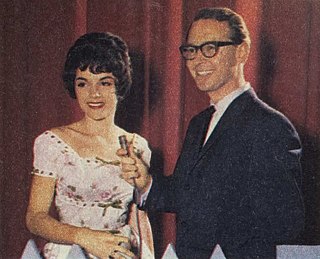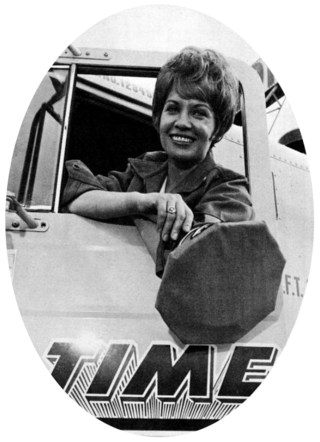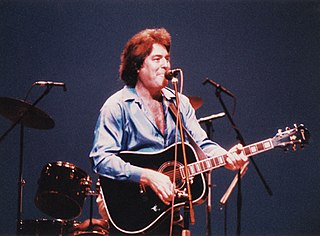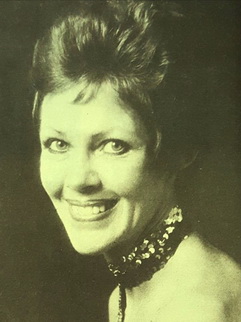
Fabian Anthony Forte, professionally known as Fabian, is an American singer and actor.

Helen Maxine Reddy was an Australian-American singer, actress, television host, and activist. Born in Melbourne to a show business family, Reddy started her career as an entertainer at age four. She sang on radio and television and won a talent contest on the television program Bandstand in 1966; her prize was a ticket to New York City and a record audition, which was unsuccessful. After a short and unsuccessful singing career in New York, she eventually moved to Chicago, and subsequently, Los Angeles, where she made her debut singles "One Way Ticket" and "I Believe in Music" in 1968 and 1970, respectively. The B-side of the latter single, "I Don't Know How to Love Him", reached number eight on the pop chart of the Canadian magazine RPM. She was signed to Capitol Records a year later.
Rock music in Australia, also known as Oz rock, Australian rock, and Aussie rock, has a rich history, rooted in an appreciation of various rock genres originating in the United States and Britain, and to a lesser extent, in continental Europe and Africa. Australian rock has also contributed to the development of some of these genres, as well as having its own unique Australiana sound with pub rock and its Indigenous music.

American Dreams is an American drama television series that ran on NBC for three seasons and 61 episodes, from September 29, 2002, to March 30, 2005. The show tells the story of the Pryor family of Philadelphia during the mid-1960s, with many plotlines around teenager Meg Pryor, who dances on Dick Clark's American Bandstand. The show often featured contemporary musicians performing as popular musicians of the 1960s. Season one takes place in 1963–64, season two in 1964–65 and season three in 1965–66.

Patricia Ann Ruth Noble was an Australian singer and actress. Initially performing as Patsy Ann Noble, she was a teenage pop singer in the early 1960s, with regular appearances on the Australian music and variety television series Bandstand. In November 1961, she released her biggest hit single, "Good Looking Boy", which reached the Top 10 in Melbourne and Top 20 in Sydney. At the 1961 Logie Awards, she won the Best Female Singer of the Year award from TV Week. By 1962, she had transferred to the United Kingdom and continued her singing career by releasing singles there.
Patricia Thelma Thompson OAM, known professionally as Little Pattie, is an Australian singer who started her career as a teenager in the early 1960s, recording surf pop, with her backing group The Statesmen. She subsequently went on to record adult contemporary music.

Norma Jean Beasler is an American country music singer who was a member of The Porter Wagoner Show from 1961–1967. She had 13 country singles in Billboard's Country Top 40 between 1963 and 1968, recorded twenty albums for RCA Victor between 1964 and 1973, received two Grammy nominations, and was a Grand Ole Opry member for several years.

James Oswald Little, AO was an Australian Aboriginal musician, actor and teacher, who was a member of the Yorta Yorta tribe and was raised on the Cummeragunja Reserve, New South Wales.
Leslie William Morrison, known professionally as Lucky Starr, is an Australian pioneer rock and roll, pop and country music singer, guitarist and television presenter. His most popular single, "I've Been Everywhere", appeared in early 1962, which peaked at number one in Sydney. Starr became well known through his many TV appearances on shows such as Bandstand and Six O'Clock Rock, in which he briefly hosted taking over from Johnny O'Keefe, he was the first star to entertain troops in Vietnam.

Barry John Stanton was a British-Australian rock and roll musician. He performed on pop music programs, Six O'Clock Rock, Bandstand, Johnny O'Keefe Show, Sing Sing Sing, Saturday Date, and Woody's Teen Time. He issued a compilation album, A Tribute to the King Rare Songs 1957-1965, in 1988.
Lynne Randell was an English Australian pop singer. For three years in the mid-1960s, she was Australia's most popular female performer and had hits with "Heart" and "Goin' Out of My Head" in 1966, and "Ciao Baby" in 1967. In 1967, Randell toured the United States with The Monkees and performed on-stage with support act Jimi Hendrix. She wrote for teen magazine, Go-Set, and television programme guide, TV Week. While on the US tour, Randell became addicted to methamphetamine, an addiction which she battled for most of her life.
Judith Anne Stone AM is an Australian retired pop and country music singer and musician. For much of the 1960s she was a regular performer on television music variety program Bandstand and appeared on Six O'Clock Rock.
John Howard Chester is an Australian singer-songwriter, who started his career in October 1959 with a group known as The Jaywoods, singing rock music and in 1969, changed to country music. He toured nationally with the Beatles, Roy Orbison, the Everly Brothers, Kenny Rogers, Johnny Cash, Tammy Wynette and Charley Pride. During his career, he has led various groups including Johnny Chester and The Chessmen, Johnny Chester and Jigsaw, Johnny Chester and Hotspur. With Jigsaw, he had five top 30 hit singles, "Gwen (Congratulations)" (1971), "Shame and Scandal", "Midnight Bus", "World's Greatest Mum" and "She's My Kind of Woman" (1974).
Bryan Davies is a British-born Australian pop music singer and entertainer. He appeared on 1960s TV pop shows, Sing! Sing! Sing! and Bandstand. From March 1962, at age 17, he became the youngest person in Australia to host their own TV show, The Bryan Davies Show. The singer issued two albums, On My Way (1965) and Together by Myself (1968). His most popular singles were, "Dream Girl" and "Five Foot Two Eyes of Blue" (October), which both reached the top 4 on the Sydney charts.
Diane Marie Jacobs, known as Dinah Lee, is a New Zealand singer who performed 1960s pop and adult contemporary music. Her debut single from early 1964, "Don't You Know Yockomo?", achieved No. 1 chart success in New Zealand and in the Australian cities of Brisbane and Melbourne. It was followed in September by her cover version of Jackie Wilson's, "Reet Petite", which also reached No. 1 in New Zealand and peaked at No. 6 in Melbourne. The Australian release was a double A-sided single with "Do the Blue Beat". On her early singles she was backed by fellow New Zealanders, Max Merritt & His Meteors. Lee appeared regularly on both New Zealand and Australian TV variety programs, including Johnny O'Keefe's Sing, Sing, Sing and Bandstand. She toured supporting Johnny O'Keefe, as well as Ray Columbus & the Invaders and P.J. Proby. According to Australian rock music journalist, Ed Nimmervoll, in the 1960s, "Lee was the most successful female singer in both her New Zealand homeland and Australia ... on stage and on record Dinah had all the adventure and exuberance for the time the boys had".

Digby George "Dig" Richards was an Australian rock and roll singer, songwriter, instrumentalist, musical theatre actor and television presenter, active during the late 1950s and early 1960s as lead singer with the R'Jays. Richards was the first Australian rock and roll artist to record a 12" LP record in Australia, with the self-titled album Dig Richards, released in November 1959. From 1971 he performed as a solo country music artist. According to the Kent Music Report he had four Top 30 national hit singles, "(My) Little Lover" / "Quarrels ", "A Little Piece of Peace", "People Call Me Country" / "The Dancer", and "Do the Spunky Monkey". On 17 February 1983 Digby Richards died of pancreatic cancer, aged 42. He was survived by his wife, Sue and two children.
Lorraine May Chapman, professionally known as Laurel Lea, was an Australian popular singer of the late 1950s and early 1960s. Lea appeared regularly on TV series, Bandstand, Six O'Clock Rock and Saturday Date. In 1974 and 1975 she toured throughout Australia with contemporaries Johnny O'Keefe, Johnny Devlin, Lonnie Lee and Barry Stanton. On 31 January 1992 Lea died of leukaemia.
Anna O'Byrne is an Australian actress and soprano singer best known for her portrayal of Christine Daaé in Andrew Lloyd Webber's The Phantom of the Opera and the original Australian production of Lloyd Webber's sequel, Love Never Dies, for which she was nominated for a Green Room Award.

Lynne Kera Barnett as Lyn Barnett was a New Zealand singer who had success in her home country. Later she moved to Australia and also became popular there. She made many appearances on Australian TV. She had a hit with a cover of "Please Mr. Postman". She was also the sister of singer Christine Barnett. She died some time in early 2017.
Leo de Kroo is an Australian pop and country music singer, and an accomplished luthier. For much of the 1960s he was a regular performer on Bandstand, a pop music TV show, hosted by Brian Henderson. De Kroo was one half of The De Kroo Bros. As The De Kroo Bros, they also appeared on other pop music shows.









